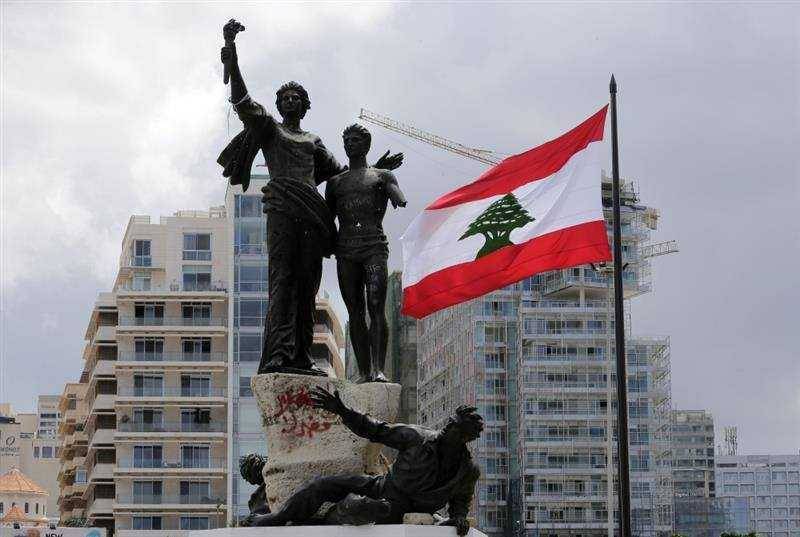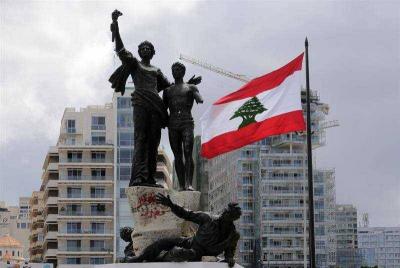Lebanon has experienced a shocking decline in the "2022 World Press Freedom Index," ranking 130th out of 180 countries. The country was in 107th place the previous year, according to a report issued by "Reporters Without Borders" titled "The Age of New Polarization." This 23-rank drop is significant for a country known for freedom of opinion and expression for many years.
In its ranking, the organization relied on five main factors: the political context of each country, the legal framework for journalists' work, economic context, social and cultural context, and the safety available to journalists in their work. Political pressure on the media landscape is stronger than ever, despite journalists believing that the "October 17 revolution ended the era of not criticizing public figures untouchable by the media." The report adds that "true freedom of expression exists in Lebanese media, but in reality, the sector is under the control of a small group of individuals directly linked to political parties or belonging to local families."
The media landscape reflects the political composition of Lebanon, while the printed press mirrors the political and sectarian disputes in the country. The organization also noted the religious censorship of media, describing it as an important weapon in the political struggle. It considered that public opinion is generally conservative, and certain topics remain taboo, such as criticizing cultural and religious heritage. Female journalists are often targeted by smear campaigns, in which political activists, particularly Hezbollah members, participate and use Twitter to threaten journalists.
Lebanon guarantees freedom of opinion and expression in its constitution and in ratified international agreements. Paragraph (b) of the preamble states that "Lebanon is a founding and active member of the United Nations and is committed to its charters and the Universal Declaration of Human Rights, representing these principles in all fields and areas without exception." Paragraph (c) states: "Lebanon is a democratic parliamentary republic, based on respect for public freedoms, foremost among them freedom of opinion and belief, and on social justice and equality in rights and duties among all citizens without discrimination or preference." Article 13 of the constitution guarantees the freedom of expression verbally and in writing, the freedom of printing, the freedom of assembly, and the freedom to form associations "within the law."
Despite the drop, the head of the Journalists' Syndicate, Aouni Al-Kaaki, remains proud that Lebanese journalism is still a leader in freedoms, even being more free than much of the world's press, despite "very difficult economic conditions and the closure of some major institutions for financial reasons." Al-Kaaki believes the reason for the decline stems from "the people in power; for example, former President Emile Lahoud refused to sue any journalist despite all the attacks against him, whereas today, the blame lies with His Excellency," referring to President Michel Aoun.
Regarding the summonses against journalists to appear before security agencies instead of the press court, Al-Kaaki stated in an interview with Alhurra that "the law has been violated, and yet we have always tried to correct matters, not complying with security requests and emphasizing the necessity to go to the press court, which is the proper and only venue to hold any journalist or opinion holder accountable."
Joseph Kassif, president of the Journalists' Union of Editors, believes that "the decline is not limited to Lebanon but also affects all countries, attributed to the dominance of financial, economic, and ideological influence, the rise of hate speech, sectarian tensions, and ethnic strains worldwide, along with the existence of totalitarian political systems that enforce strictness and censorship, punishing journalists with imprisonment and sometimes exposing them to physical and moral harm."
He added, "These indicators are present, and we observe them around us; they have not been mentioned only in international reports. The methods vary, but the oppression is the same. Regarding Lebanon, there have been no recorded assassination attempts or blood attacks on journalists for the past two years." But what about the assassination of writer Loukman Sleem? He responded, "I speak of those practicing journalism, covering news on the ground, writing regularly, and making a living from this profession. As for the late Sleem, we condemned and continue to condemn and demand clarification of the circumstances surrounding his assassination, considering him a martyr of his opinion and convictions."
Kassif does not deny the "type of violence and harassment directed at journalists in recent years," especially during the October 17 revolution, and certainly, he said, "the security forces have overused violence, and all parties on the ground have dealt with the media with a sectarian background." Kassif pointed out that "Lebanese law prohibits transferring a journalist to a court other than the press court, and we have repeatedly called for this and strive to ensure that journalists are not brought before any court due to their professional work."




